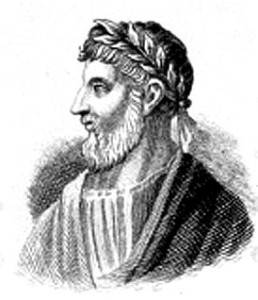Argonautica
Jason and the Argonauts (L)
Jason and the Argonauts and the quest for the Golden Fleece is recorded by Apollonius of Rhodes in his epic poem Argonautica. Although there are variants of some of the details in versions recounted by other authors, many researchers have felt that there was a kernel of truth in the story. Tim Severin was one of them and was inspired to retrace the voyage of the Argo in a replica of the ship, which led to the publication of The Jason Voyage[959]. Decades later Dr Marcus Vaxevanopoulos of the Geology Department of the University of Thessaloniki in Greece expressed his belief that there is some reality behind the story of Jason and the Argonauts(a).
Although this has no direct bearing on the Atlantis story, when you combine these euhemeristic ideas along with Schliemann’s discovery of Troy after viewing Homer’s Iliad in a similar manner, it is understandable that many have sought the truth underlying Plato’s Atlantis narrative.
(a) https://www.ancient-origins.net/myths-legends/jason-and-legendary-golden-fleece-001307
Apollonius of Rhodes
Apollonius of Rhodes (Apollonius Rhodius) (c.270 BC) was the chief librarian at Alexandria during the 3nd century BC. His  best-known work is the Argonautica [0668], a reworking of the voyage of the Argonauts, in whicht he refers to the island of Atlantides. Anton Mifsud has pointed out that in early editions of this book, Apollonius located the Straits of Heracles in Syrtis Minor (Bk.IV ii.1230) as well as the existence of shoals in that gulf. However, Mifsud notes that modern translations omit this reference. Syrtis Minor was the Roman name for the Gulf of Gabés. Lucanus, who is more usually known as Lucan by English readers, echoed this same identification.
best-known work is the Argonautica [0668], a reworking of the voyage of the Argonauts, in whicht he refers to the island of Atlantides. Anton Mifsud has pointed out that in early editions of this book, Apollonius located the Straits of Heracles in Syrtis Minor (Bk.IV ii.1230) as well as the existence of shoals in that gulf. However, Mifsud notes that modern translations omit this reference. Syrtis Minor was the Roman name for the Gulf of Gabés. Lucanus, who is more usually known as Lucan by English readers, echoed this same identification.
